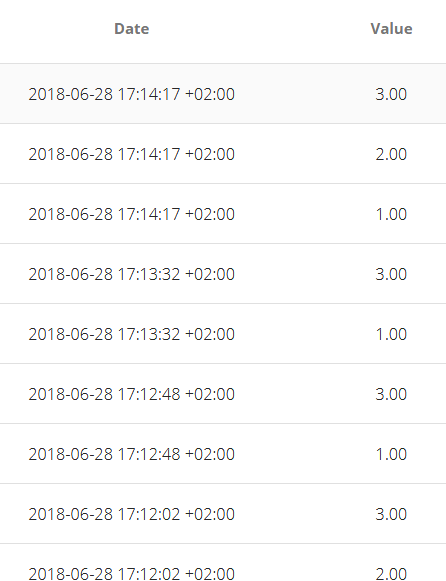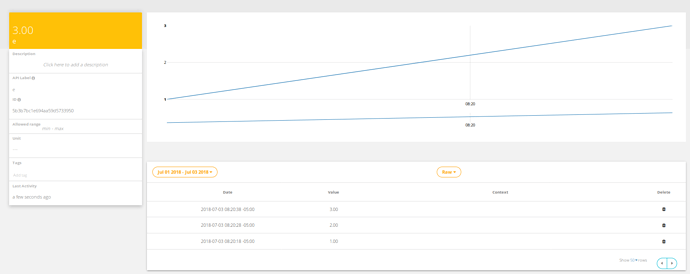Hello Community,
I am working with the HTML Canvas Demo (http://help.ubidots.com/developer-guides/html-canvas-widget-introductory-demo) and modifying it according to my needs.
I need to get not only the latest value of a variable, but the last 10 elements.
From my device I send an array of values to a certain variable. I want to display the list of the values sent last time, the whole array.
Using the funtion of the example:
$.get(url, { token: token, page_size: 1 }, function (res) {
if (lastValue === null ||res.results[0].value !== lastValue.value) {
lastValue = res.results[0].value;
I need to access no only the position ‘0’ but also the positions ‘1’ to ‘9’ for example.
Could you please help me out here?
Thanks a lot!
Francisco









